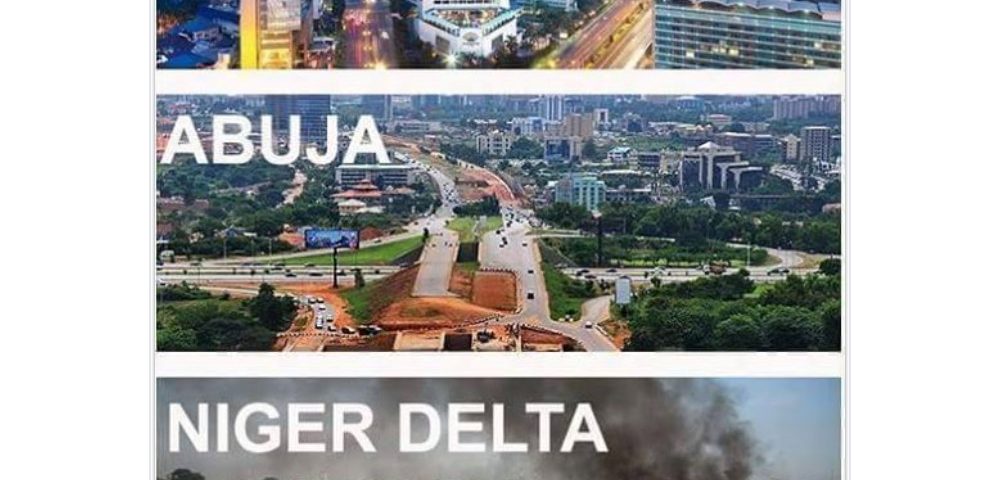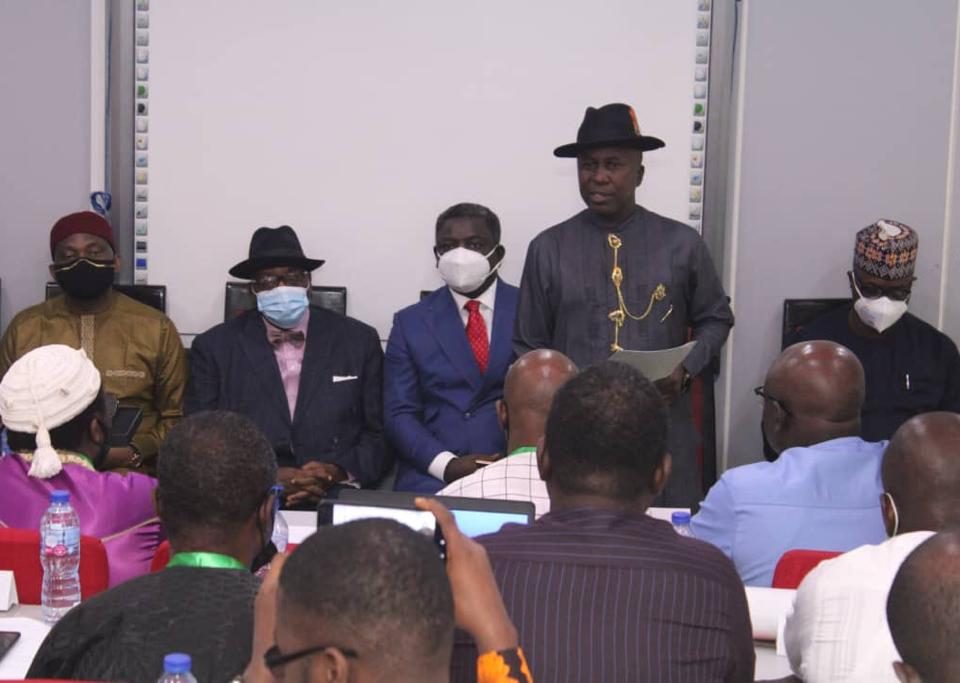
Obasanjo: A Great Diplomat
March 5, 2016
SHETTIMA ALI MONGUNO (1926 – 8 July, 2016)
July 15, 2016Issues In Handling Niger Delta Avengers – By Steve Azaiki
There is a sense of déjà vu in the rise of the Niger Delta Avengers, whose activities of sabotaging oil and gas infrastructure have brought about dramatic impact on Nigeria’s economy, which is already faced with recession. A little over a decade ago, the Movement for the Emancipation of Niger Delta (MEND) and other groups ruled the creeks in what can be described as the first major wave of militancy anchored on agitation for resource control by radical elements in the Niger Delta. However, MEND and others were only a recent historical experience. We have to reach far into the 1950s to search out the basis and recommendations of the Willinks’ Commission, come to the 1960s when Isaac Adaka Boro led the 12-Day Revolution, and in the 1990s when the Movement for the Survival of Ogoni People (MOSOP) rose through non-violent agitation—all this excursion is to enable us get a proper perspective on the here-we-go-again feeling which the Niger Delta Avengers bestir in those know, or should know, where the shoe pinches.

I was Secretary to the Bayelsa State Government, under Governor Diepreye Alamieyeseigha, at the height of MEND activities in the Niger Delta. I had first-hand experience coping with daily reports of kidnapping, disruption of oil production, exodus of companies and their staff, and the drastic slow-down in the pace of infrastructural development. The first-hand experience also included being involved in negotiations to free hostages ransomed by MEND and others. Out of office, I continued my contributions to public discourses on how best to resolve the Niger Delta crisis at the time. My contributions were majorly through newspaper articles and high-level private meetings. As National Coordinator of the National Think Tank, I also directed focus groups to marshal out workable solutions to the crisis. Some of my published contributions form part of my book, Thoughts On Nigeria. And while the Amnesty Programme for the militants can rightfully be claimed by many as its progenitor, of whom I am one, ultimate credit goes to the late President Umaru Yar’Adua for his buy-in and eventual transformation of the idea into State policy.
So, how does the nation respond to the Niger Delta Avengers?
From far and near, there has been no shortage of calls for dialogue between the Federal Government and the Avengers. This is a welcome disposition that subordinates the option of all-out military response to the Avengers. And there are good grounds for keeping the guns silent in the meantime, even beyond the two-week ceasefire the government has imposed on the military, in order for dialogue to be explored. While military reaction clearly reasserts the authority of the State to deal with any untoward challenge or insurrection, that approach is not necessarily a solution. It can be an aggravator.
Thus, full-scale military response to the Avengers (as in the reported earlier directive to “crush the saboteurs”) will have its own immediate collateral consequences, the first of which will be internally displaced persons in the theatre of conflict. At a time the country is grappling with the appalling welfare of millions of IDPs produced as a result of Boko Haram terrorism, the country can ill-afford to open up another production line of IDPs, as the humanitarian crisis is bound to escalate in the Niger Delta in the event of full-scale military assault on the Avengers. We had seen it in the past when the military took on MEND and other rag-tag groups before the Amnesty Programme. Already, there are reports of villages sacked, and hundreds displaced, as the military seek out the Avengers. The numbers of IDPs is bound to escalate once the military raise the tempo and intensity of their intervention.
A humanitarian crisis in the Niger Delta at this time will cost both the military and the Federal Government enormous goodwill—in the region and beyond. Care must, therefore, be taken not to accelerate a groundswell of popular support for the Avengers. This is because scenes of humanitarian crisis, including collateral deaths, are bound to lead to the question: “Is it because of the oil under our soil that all this is happening to us?” (Read: The Evil Of Oil, a book by Steve Azaiki). Once goodwill is lost in the area, there is no foretelling what the grave consequences might be.
Furthermore, the Federal Government must consider the restoration cost in the aftermath of decisive military action. The military will not merely explode their arsenal in the creeks. They will raid and bomb human settlements in order to smoke out their targets. Those places will suffer devastation and destruction. Who will rebuild them? Who will bear the cost? I think there are pertinent lessons to learn from the difficulties in raising, and managing funds, to repair the North East region, hit hard by Boko Haram.
Another dimension to restoration cost relates to future environmental remediation. Admittedly, by blowing up well-heads, pipelines, and other oil facilities, the Avengers are further polluting the Niger Delta. But the rate and scale of pollution is bound to increase where there is coercive State action to contain and overwhelm the Avengers. The scenario is something like this: as the Avengers are being pounded, arrested and/or detained, elements of the group will engage in further acts of sabotage, if only to, at first, mock the firepower of the military, or just to bluff that they have not been silenced. In that case, the Niger Delta should brace up for more destruction of its flora and fauna. But whether this is a palatable option is answerable by recalling that on June 2, 2016, President Muhammadu Buhari, represented by Vice President Yemi Osinbajo, flagged-off the clean-up of Ogoniland. It is a project that will cost about US$ 1 billion, and last between 25 and 30 years. Already, voices in the oil-producing states are calling for the extension of similar clean-up programmes to other impacted sites in the Niger Delta. Just think about how the restoration cost of the Niger Delta will be aggravated by an all-out war on the Avengers.
In the light of the foregoing, the case for dialogue between the Federal Government and the Niger Delta Avengers, as has been widely advocated, is cogent. However, what has not been so widely canvassed are the context and content of the proposed dialogue. As it were, dialogue presupposes negotiation. Getting fit and proper persons to represent either side in the dialogue is one of the initial hurdles. While there might be little challenge on the side of government to nominate its negotiators, what is certain is that the kingpins of the current campaign of sabotage are most unlikely to present themselves at the negotiating table. They can only test the waters using proxies, until such a time when greater and mutual trust is established, then they might present themselves, if at all that is considered necessary.
Perhaps more intruiging is the context of the proposed dialogue. A lot has happened between the first major wave of militancy a little over a decade ago, and the new wave of militancy spearheaded by the Avengers. There is now no “Governor-General of the Ijaw Nation” following the demise of Chief Diepreye Alamieyeseigha last year. Part of his added value while he was around, especially during the first wave of militancy, was his capacity to rally the boys and men, and ultimately contribute to the development of the Amnesty Programme. Alamieyeseigha was a respected voice in the region. Even with the disagreement he had with President Olusegun Obasanjo, over his (Alams’s) frontline campaign for resource control, which was partly the reason for his orchestrated impeachment and removal from office as Bayelsa Governor, Alamieyeseigha and President Obasanjo were in constant dialogue over the MEND crisis, and on some occasions received presidential mandate to undertake sometimes dangerous journey by sea, to secure the release of oil workers taken hostage by militants in offshore locations.
Also, at the time of the first wave of militancy, most leading political figures in the region were virtually on the same page. Today, partisan politics has deeply fractured the Niger Delta, breeding suspicion, allegations of treachery, and witch-hunt. As it were, all but one state (Edo) in the South-South zone is controlled by the People’s Democratic Party. I believe President Buhari should personally take the lead in forging a bipartisan consensus in finding solutions to the rise of the Avengers, which means that the President has to rapidly build upon the initial step taken by the Vice President who met recently with Governors from the oil-producing states. It would, therefore, be a significant achievement if the mutually antagonistic political forces in the Niger Delta today were to find a common platform to resolve the current wave of militancy through dialogue. Such feat can come about by addressing the factors that have stoked the fierce political competition in the region.
Another important context is the Amnesty Programme that has been running since it was proclaimed by the late President Yar’Adua in 2009. While the Disengagement and Disarmament phases of the three-phase programme have been widely acknowledged as successful, the Reintegration phase has proved to be quite challenging. Ex-militants, some of whom went for training abroad, have had difficulty securing gainful employment. So, will further extension of the lifespan of the Amnesty Programme be a bargaining chip for the Federal Government in the proposed dialogue with the Avengers? Yet, one cannot gloss over the sometimes trenchant position of those who contend that the Amnesty Programme is an appeasement mechanism that will have no end in sight, as new groups might emerge, rattle the federation, and then get to be appeased through a variant of the Amnesty Programme.
Let us also throw into the mix some other issues of which Niger Deltans are keenly aware, but which the Avengers are now articulating in other ways. For instance, Nigerians know that the Petroleum Industry Bill (PIB) has suffered a long stay in the National Assembly, because of some contentious provisions, including benefits to host communities in the oil-bearing states. And yet, some of the loudest voices opposed to the proposed benefits are far removed from the oil-producing communities which daily endure the hazards associated with crude oil exploitation. Nigerians have been witnesses to how the Niger Delta Development Commission (NDDC) has been grossly underfunded, never receiving its full yearly allocation, and therefore hampered in fully achieving its mandate, even if the Commission’s internal squabbles were discounted.
Above all else, there was the 2014 National Conference, which made about 600 recommendations covering a wide variety of national matters. We cannot forget easily that advocates for the various regions/zones came to the Conference, talked, debated, disagreed, and when sometimes it appeared the roof would collapse, the delegates reached a consensus. Those 600 recommendations are the collective resolve of Nigerians, notwithstanding the opinion of some who sneered at the idea of the Conference in the first place.
Just how valuable the Report of the 2014 National Conference is, can be gauged partly from recent comments of distinguished statesmen, senior citizens and pressure groups calling for a restructuring of the Federation. These are among the demands of the Avengers and Independent Peoples of Biafra (IPOB), which is also creating tension in the polity on the South-East flank. So, what will be the content of the proposed dialogue between the Federal Government and the Avengers, if fundamental issues are swept under the carpet? To buy time? Or, to create room for another group to re-emerge in the future and demand resolution of the fundamental issues? On the other hand, if the Federal Government were to proceed with the implementation of the far-reaching recommendations of the National Conference, that would weaken the position of the agitators.
In itemizing and discussing the several issues raised above, my intention has been to indicate that the dialogue option with the Avengers, which is desirable, will not be a stroll in the park. There will be temptations to break off the talks, but the alternative might be worse. Nominated negotiators should have in their minds issues raised in this piece, and prepare their agenda for resolving the knotty points once they arise, as they are bound to. A haughty disposition will be most unhelpful. It’s a long road ahead.
- Prof Azaiki, former Secretary to Bayelsa State Government, and National Coordinator of the National Think Tank, contributed this piece from Kiev, Ukraine.


